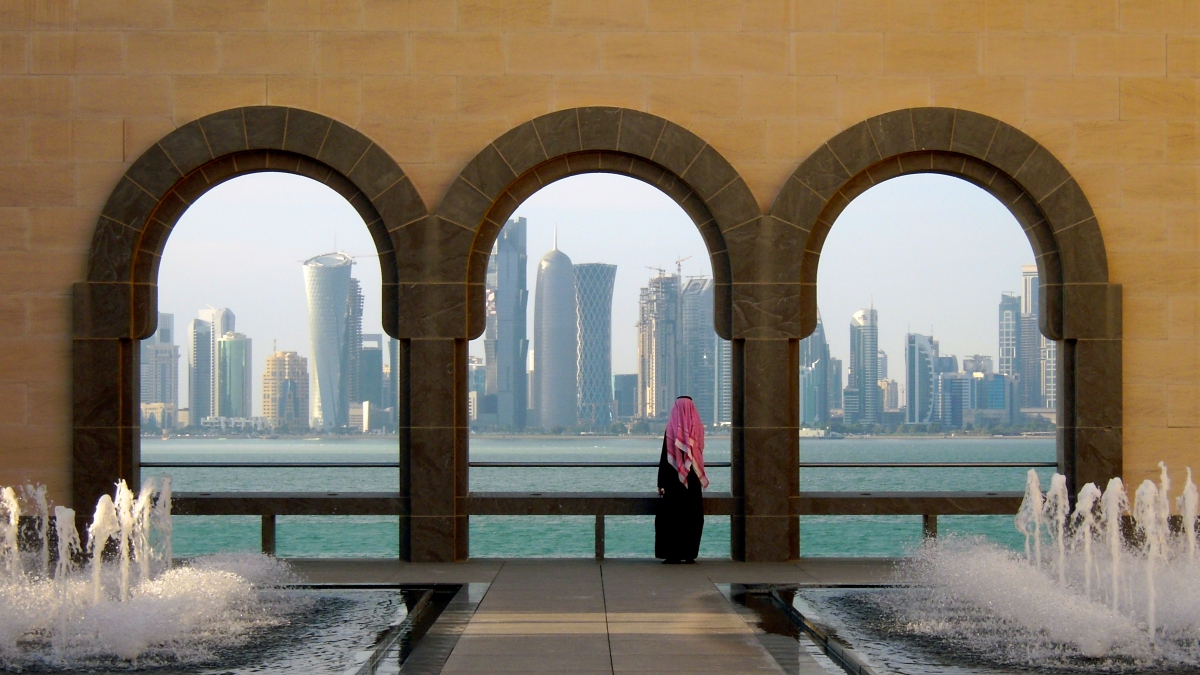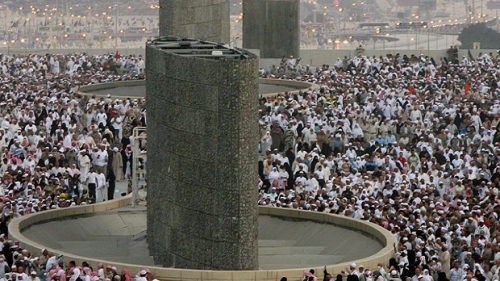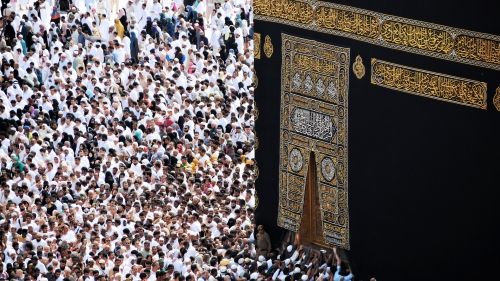Has Modernity Failed?

Introduction
Modernity is a universal term. It is at once a historical period, worldview and ideology. As such, it’s got much in common with modernism, which signifies the character or quality of being, thought, beliefs and ideas associated with modernity as an ongoing chapter in history. The two concepts are often used interchangeably.
With its virtually global currency and endless ramifications, modernity was perhaps the most impactful phenomenon that has happened to mankind. To be modern, to live a modern lifestyle, and to get modernized - that is, to realize man’s instinctive and total well-being here and now - was on everyone’s lips. Ideas and experiences materialized and unfolded at all levels of existence: individually and collectively, unofficially and at the level of institutions.
However, as the especially 19th and early 20th century modernity euphoria started to subside, it became increasingly clear that modernity was not what it initially was meant and expected to be. Modernity was envisaged to become a generator, as well as personification, of ultimate truth and freedom, leading, in turn, to the creation of new and significantly better societies. The whole world was expected to be made an exceptionally better and more promising place. At the core of this philosophy stood the belief in the perfectibility of humankind adorned with truth, equality, freedom and erudition.
The philosophical and civilizational paradigms of modernity denoted a synthesis of a theoretical utopianism, intellectual arrogance, and scientific along with technological overindulgence, which were permeated and sustained with the spirit of the notions of skepticism, humanism, nihilism and hedonism. Due to the extraordinary nature and scope of modernity, its escalating drawbacks led the world to a crossroads. The very existence of human species and delicate earthly ecosystems appears today to be at stake. If any turnaround in fortune is to be made anytime soon, some tough ontological together with matter-of-fact questions will need to be honestly asked and as honestly answered.
This article discusses the two-sidedness of modernity, emphasizing the consequences of its separation from and setting itself on a collision course with the spiritual and traditional realms.
Conceptualizing Modernity
The word modernity is derived from the Late Latin adjective “modernus”, which means “modern”. The former is further a derivation from the Latin adverb “modo”, which means “just now, presently, at the moment”. Modern, it follows, is what is prevailing in our time.[1]
Modernity is an aggregate of particular socio-cultural beliefs, standards, outlooks and practices that began in Western Europe in the wake of the 16th and 17th century Renaissance and the 18th century Enlightenment. It is a comprehensive worldview and philosophy framed by a distinct historical epoch that witnessed a series of profound socio-structural and intellectual transformations. As a cultural project, modernity achieved its maturity with the fruition of Enlightenment, and as a socially accomplished form of life with the growth of individual (capitalist, and later also communist) society.[2]
To Hilde Heynen, modernity “constitutes that element that mediates between a process of socioeconomic development known as modernization, and subjective responses to it in the form of modernist discourses and movements.” That means that modernity is a phenomenon with an objective and subjective aspect. The former is linked to socioeconomic processes, and the latter is connected with personal experiences, artistic activities and theoretical reflections. Some people tend to separate the two domains, while others keep them together.[3]
It was arguably during and in the immediate aftermath of the French Revolution (1789-1799) when monarchy as a system of government and the Catholic Church were dealt a heavy blow, triggering, as a consequence, the rapid rise of nationalism and boosting of citizens’ fundamental rights that revolved around freedom, liberty and equality - that modernity as a concept and life pattern got into full swing. Such was a time when the modern public was brought into being; when the notion of ‘man’ as an essentialist, transcendental subject developed; and in the wake of which Hegel, the first philosopher to experience modernity as a problem, “evolved a comprehensive legitimizing system to reassure modernity about itself”.[4]
Accordingly, in historiography the late 16th and entire 17th and 18th centuries are described as early modern, while the 19th century with some of its prolonged periods of matchless technological advance and economic growth - albeit coupled with a wave of political revolutions - is regarded as modern history proper. However, the late 19th and the first half of the 20th century - the latter having been forever darkened by the devastating and demoralizing World Wars - were a time when some serious doubts started to creep into the phenomenon and project of modernity.
As a result, modernity’s faith in absolute reason began to dwindle. It was maintained that below the surface of rationality lie impulses, instincts and drives that constitute a deeper reality.[5] The beliefs in linear progress, absolute truths, ideal social orders and the regularization and control of epistemology were shaken to their core as well. The world was ever more torn between the experience of modernity as progressive and the experience of modernity as chaotic. Whereas modernity while at its peak felt that it had the whole world at its feet, the global events of the first half of the 20th century changed everything. The ubiquitous Western buoyancy that modern humanity would generate a just, unprejudiced, peaceful and thriving new age was thus unsettled forever.[6]
The doubts and questionings culminated in gradual departing from modernity and modernism and their tendencies, and embarking on the idea, phenomenon and historical period of post-modernity and post-modernism. The latter’s historical framework is generally perceived as the middle and late 20th century. It connotes the latest phase in human intellectual and cultural evolution. By and large, post-modernism is a reaction against the intellectual and, to a lesser extent, social and cultural assumptions, beliefs and values of modernity. Post-modernism is characterized “by broad skepticism, subjectivism, or relativism; a general suspicion of reason; and an acute sensitivity to the role of ideology in asserting and maintaining political and economic power.”[7] The common thread in both modernity and post-modernity is a bitter conflict with religion as a rival source of epistemology and morality, accentuating the value and agency of human beings, affirming that without religion and the interference of Heaven people are capable of leading ethical lives of personal fulfillment, and preferring rationalism and empiricism over the revelation.
As an outgrowth from Renaissance humanism and Enlightenment’s age of reason, modernity featured dominantly in effectively all aspects of Western culture and civilization. Its hallmarks cantered on the questioning or the outright rejecting of traditional and religious doctrines and values; giving precedence to individualism, liberty, freedom, equality and skepticism; replacing “the religious understanding of nature with the new ‘mechanical philosophy’, which not only claimed to be a science of nature but also to be the only legitimate science of the natural world”, ensuring thereby “the triumph of a purely quantitative understating of the order of nature over the religious and qualitative one”[8]; harboring an unwavering faith in ultimate social, scientific and technological progress; the emergence of the capitalism system, the market economy, industrialization, urbanization, secularization, nation-state and democracy.[9]
Rejection of Tradition and Religion
Modernity stemmed from a rather rebellious mood that coveted to regenerate the way people perceived and experienced life, politics, society, science and art. The status quo dictated by religious (Christian) traditions and political authorities was deemed too lethargic, corrupt, unfulfilling, and ailing to continue unopposed.[10] Religious dogmas, values and moral principles were questioned, or rejected completely, because of their arbitrariness, futile formalism, opacity and exertion of control over human feelings, yet total human existence.
On account of the novel scientific and technological dynamics and their constant advancements and discoveries, the proponents of modernity felt a sense of perennial anticipation and hope. They found it unwise and counterproductive to commit themselves and their potentials to any existing system of thought and life and thereby curtail the most prized commodities: creativity, resourcefulness and prospects. Their flames needed to be cherished and nurtured, rather than controlled or, worse yet, extinguished. To be modern and think as such was an exhilarating thing. The impending age of modernity and its modern world were meant to be the most exciting existential contexts to live in and to participate in whatever way in their bettering. In other words, modernity generated an aura of worldly paradise. On his path to an intellectual self-actualization and moral perfection, modern man felt invincible and unstoppable.
However, having successfully undermined and forever shunned the religious dogmas and authority of the Church, modern man unconsciously created a myriad of new religious cults that pertained to science and technology. If he stopped obeying and worshiping God, he in effect ended up deifying himself and his achievements as well as aspirations. Furthermore, if he de-sacralized the world and religious institutions through science and technology, he once more ended up creating and sacralizing his own artificial world. That world was constructed and sustained by modern man’s newly established systems and institutions, which were invested with a halo of “modernist sanctity”.
The Christian religious authority, admittedly, was to be largely blamed for the scenario. Its legitimacy and power, and the legitimacy and power of its Bible, were shaken and compromised, firstly, by the split of European Christianity, and secondly, by the uneasy relationship between faith and the emerging modern empirical science. Certain religious beliefs were proven empirically flawed or, at best, seriously questionable. Christians often found themselves “on the back foot”, as they attempted to respond to such alarming developments.
Generally, the Church was slow and reluctant to respond to the rising modernity trends and the undercurrents they produced. One wonders if that was a sign of weakness or admission of irreconcilability. Hence, left in the lurch, people were unsure as to which branch of Christianity represented orthodoxy, and which one did otherwise. Disagreements, and even conflicts, were numerous, inexhaustible and, above all, fundamental. Nobody was utterly certain whose interpretation of Scripture was most authoritative and why.
Moreover, this caused many philosophers and scientists to embark on journeys of discovery of their own, in quest of new grounds for certainty and offering the truth-seeking persons new alternatives. Perhaps most emblematic of this ethos was Rene Descartes (d. 1650), a French philosopher, scientist and mathematician, who set out on his mission of radical doubt that led to his celebrated maxim, “I think, therefore I am.” The process possibly marked the commencement of the European Enlightenment, with its faith in individual human - rather than religious - enquiry.[11]
The case of Francis Bacon (d. 1626), an English philosopher and politician with a passionate interest in science, is also worth mentioning. He repudiated dependence on ancient authorities, including medieval Scholasticism, which was based on Aristotelian logic and the works of the early Christian founders, and gave emphasis to tradition and creed. He advocated arriving at scientific conclusions through inductive reasoning as a precursor to the empirical method. The knowledge thus gained, Francis Bacon argued, was practical and useful, contrasted with medieval Scholasticism which he criticized as too theoretical and impractical. As a result of the applicability of the former knowledge in commerce and industry, human lives will generally improve, as they will attain greater power and control over their environment.[12] To Francis Bacon and his Scientific Revolution counterparts, therefore, knowledge was power and the most important asset.
Finally, the authority of the Church and Bible was undermined from within when Enlightenment and modernity criticism “entered the theological academy and investigated the Bible without the presumption that it was God’s holy words, but rather on the basis that it was an ancient text (or collection of texts) like any other”.[13] All of a sudden, Christianity’s core texts were made by historical-critical investigations to be the object of human rather than the revealed knowledge. That lent credence to the conviction of modernists that society should be ridden of superstition and ignorance in the name of religion, and that a rationalist and scientific mind-set should be propagated instead for the pursuit of a source of knowledge and morals.
According to Seyyed Hossein Nasr, at the heart of the cluster of reasons as to why religion (Christianity) lost the cosmos in the West to modern science, and why the Christian view of the order of nature was eclipsed by science during the Scientific Revolution, lies the following: “the weakening of the sapiential dimension (having or providing wisdom), with its emphasis upon the symbolic significance of the cosmos within Christianity; the rise of a rationalism already embedded to some extent in the Thomistic synthesis; the dominance of nominalism in the late Middle Ages; the eclipse and marginalization of Christian philosophy during the period, which marks the incubation and formation of modern science; and the all-important rise of humanism in the Renaissance”.[14]
Once the corruptions of religious and political authorities were cleansed by reason and open-minded thinking, the path to truth was clearly shown. Facilitating the arrival at truth and teaching it was the task of education. Education was recognized as a vehicle for nourishing and further promoting the newly found truth and its infinite socio-cultural manifestations and ways. It was aimed at enlightening the masses and making them better citizens and better people. Educated enlightened people will form the foundations of the new free and integrated society, a society which they will create through their own efforts.[15] If God created the universe, earth and people, He was not needed afterwards for running and managing the human lives on earth. God could be accepted as creator, but not as a guide.
The End of Modernity?
However, the worldview and ideals of modernity soon proved to be significantly untrue and unnatural, having no basis in the reality of human condition. Riddled with doubts concerning the continued feasibility and sustainability of material progress, human liberty, freedom and equality, the edifice of modernity fast started to fracture. It in the end degenerated into a corrupt and oppressive system of thought, attitudes and practices. It at long last might have become as fraudulent and unjust as the religious and political systems it sought to overthrow and replace. Especially its philosophical underpinnings were perceived as a synthesis of all heresies that threatened to destroy all religions.[16]
It was as early as in the 16th century that Martin Luther, a seminal figure in the Protestant Reformation, warned: “Reason is the greatest enemy that faith has; it never comes to the aid of spiritual things, but — more frequently than not — struggles against the Divine Word, treating with contempt all that emanates from God.” Martin Luther also said: “Reason is the devil’s handmaid and does nothing but blaspheme and dishonor all that God says or does.”[17]
The modernist ideology deteriorated to the point where its fundamental notions of truth, freedom, liberty, education, justice and equality were transformed by many Western governments and other institutions into self-serving excuses for invasion, subjugation, conversion, and exploitation. Christopher Witcombe writes that “to the dismay of progressive intellectuals, the ideology of modernism has also become the means by which the values and worldview of the West have been promoted and imposed around the world either through imperial colonialism and economic globalization, or through the ‘conditionalities’ attached to loans granted by the International Monetary Fund, and policies serving Western interests that are forced on developing countries by the World Bank. With proselytizing zeal, local cultures, customs, economies, and ways of life in Third World and developing countries have been swept aside in the name of ‘modernization’ the benefits of which have been measured primarily in Western terms. Modernism has been the West’s most effective and influential export and in fact has been willingly embraced by many non–Western cultures for commercial, economic, or political reasons, or as a demonstration of support of Western ideals.”[18]
It is now widely held that the period defined and dictated by the modernist philosophy and principles has ended. Now is a phase of transition into a new phase of human history called post-modernity or post-modernism. The term generally implies a broad spectrum of anti-modern penchants, on the one hand, and such as call for the revision of modernist fundamental assertions and ideas, on the other. It stands to reason that modernity failed in the sense that it has abruptly ended, and in the sense that it achieved little of what it had intended.
Modernity was guilty of naïve realism where the truth about the supposed objective natural reality, independent of whether anyone is thinking about or perceiving it, has been manipulated and attempted to be imposed on everyone globally. The pursued objective truth was regarded as independent of human beings and all of their intellectual and socio-cultural influences. It was also believed that the descriptive and explanatory statements of scientists and historians could, in principle, be objectively true or false.[19] This doctrine accorded science and scientists all the leverage they needed to ascribe a sense of functional sanctity to themselves and what they were doing.
The proponents of modernity and modernism were likewise way off the mark when they affirmed that through the use of reason and logic, and with the more specialized tools provided by science and technology, human beings were likely to change themselves and their societies for the better. It was reasonable to expect that future societies will be more humane, more just, more enlightened, and more prosperous than they were before.[20] It was proven time and again – and it is still being the case – that the misguided pursuit of scientific and technological knowledge leads to the development of technologies for destruction, oppression, subjugation and exploitation. It was owing to that verity that to a majority of researchers, the most advanced 20th century was at the same time the bloodiest in human history, as it was fraught with wars, genocides and famines.
Another problem with modern man was that he gained a new - albeit faulty - conception of himself as a being endowed with reason and technological power, totally independent of Heaven and its revealed knowledge and guidance, “and ready to conquer Earth, both its non-European humanity and the order of nature.”[21] Modern man further viewed himself – again entirely predicated upon humanism, naturalism, rationalism, individualism, and skepticism as the cornerstones of the modernist worldview - as a being whose solitary goal was bodily pleasure rooted in the stimuli of greed, self-centeredness, pride and vanity. Consequently, modern man became a prisoner of his senses and desires, which he had to seek to constantly satiate without limit. He showed no interest whatsoever in the potential significance of both his body and the surrounding natural world in the religious, metaphysical, and cosmological sense.[22]
Relentless scientific discoveries and technological dynamics, fed with the unrestricted innovation and creativity spirit, created a sense of perpetual expectation, hope and insatiability. People wanted more of everything, and that those things be always better, faster, and brighter. There was so much in life to be experimented and enjoyed by everybody. Opportunities were limitless and life was not to be wasted on lethargy, traditionalism, and conformity. It was to be lived to the fullest. It could be asserted, therefore, that the pinnacle of modernity and modernism signified the birth of popular culture as a concept and social phenomenon with mass accessibility and appeal, personifying the most broadly shared meanings of a social system.[23]
The Consequences of Modern Man’s Nihilism and Hedonism
The dire consequences of such a modernist philosophy and such a set of modernist behavioral patterns could be anticipated. And they were as pervasive and universal as the philosophy and lifestyles that instigated them. As Seyyed Hossein Nasr puts it: “Modern man has burned his hands in the fire which he himself kindled when he allowed himself to forget who he is. The problem of the devastation brought upon the environment by technology, the ecological crisis and the like, all issue from the malady of amnesia or forgetfulness from which modern as well as postmodern man suffer.”[24] Modern man has simply forgotten who he is and how he is relatable to the spiritual realm and the realm of his Creator and the Creator of the whole universe. Living on the periphery of his own circle of existence, Modern man “has been able to gain a qualitatively superficial but quantitatively staggering knowledge of the world. He has projected the externalized and superficial image of himself upon the world. And then, having come to know the world in such externalized terms, he has sought to reconstruct an image of himself based upon this external knowledge.”[25]
One of the greatest crimes of modernity was the undue exaltation of man’s freedom. Such happened to the extent that it was held that man was so talented and capable that he could act independently of any other agent in the universe, while harboring the idea of a new world and indefinite material progress therein, which was set to be identifiable with the attainment of man’s inclusive welfare and happiness. It was additionally believed that only free man could change and form the world. On account of his newly acquired qualities – on top of which stood absolute freedom – man could do so “as he willed irrespective of any cosmic laws or even of the Divine Will.”[26]
Thus armed with his rebellious and defiant tendencies against Heaven and the metaphysical world, selfish and avaricious personality, disoriented mind and character that lacked any genuine moral compass, modern man was set to cause in the long run more damage than benefit for himself, humankind and the natural world. He proved thereby that his modernity project was more of a mirage than an authentic and definite achievement. The global spiritual, moral and environmental crises that have been brought about by modern man and his science and its applications in the sphere of technology, have been unprecedented both in scope and intensity. So critical and so omnipresent are the crises that they could yet prove a cause of the ultimate demise of man as a species.
Having fully forgotten who he is, where he belongs and what his life purpose and mission are, artificial modern man has created artificial environments for himself and his operations. Concrete jungles, calling to mind the worst and most unpleasant aspects of modern predominant urban life, have become the rule of the day for modern urbanized man. From those artificial environments, nature, human natural disposition and, of course, elements of spirituality, have been excluded to the greatest possible extent. Nature has become desacralized for modern man. It has come to be regarded as something to be used, exploited and profited from to the fullest extent possible without any sense of obligation and responsibility towards it.[27]
All the talk nowadays about sustainable development and peaceful coexistence with nature is not due to modern and postmodern man’s sudden change in attitude towards nature, life and himself. Rather, it is due to man’s realization that the natural resources of the world are dwindling at an alarming rate. As such, he will soon become unable to rampantly use and enjoy nature for his greedy and selfish ends, as he did in the past. As attractive as they seem, the notions of sustainability and preservation of nature aim only to prolong man’s raping and exploitation of the natural world as a means as well as object of his physical pleasure-seeking. Hence, the issue is never about nature, but about man; nor is it about the inherent interests of nature, but about the artificial and extravagant interests of man.
The harmony between man and his self, and between man and nature, has been damaged by modernity beyond repair. That is a fact everyone seems to be ready to admit. But not everyone realizes that this disequilibrium, with its internal and external manifestations in man and his existential contexts, “is due to the destruction of the harmony between man and God.”[28]
Lastly, as an illustration of the scale of the problems faced by man today, according to the findings from a United Nations-backed panel called the Intergovernmental Science-Policy Platform on Biodiversity and Ecosystem Services (IPBES), up to one million plant and animal species face extinction, many within decades, because of human activities. Without “transformative changes” to the world’s economic, social and political systems to address this crisis, the IPBES panel projects that major biodiversity losses will continue to 2050 and beyond. “We are eroding the very foundations of our economies, livelihoods, food security, health and quality of life worldwide,” says IPBES chair Robert Watson.[29]
[1] Leszek Kolakowski, Modernity on Endless Trial, (Chicago: The University of Chicago Press, 1990), p. 6.
[2] Richard Sheppard, Modernism-Dada-Postmodernism, (Evanston: Northwestern University Press, 1999), p. 8.
[3] Hilde Heynen, Architecture and Modernity, (Cambridge: Massachusetts Institute of Technology, 1999), p. 10.
[4] Richard Sheppard, Modernism-Dada-Postmodernism, p. 8.
[5] Marvin Perry, Joseph Peden and Theodore Von Laue, Sources of the Western Tradition (Volume II: from the Renaissance to the Present), (Boston: Houghton Mifflin Company, 1999), p. 264.
[6] Richard Sheppard, Modernism-Dada-Postmodernism, p. 8-9. Jon Newton, The Revelation Worldview: Apocalyptic Thinking in a Postmodern World, (Eugene: Wipf and Stock, 2015), p. 21.
[7] Brian Duignan, Postmodernism, (Encyclopaedia Britannica, www.britannica.com/topic/postmodernism-philosophy, 2018, accessed on June, 10 2019).
[8] Seyyed Hossein Nasr, Religion and the Order of Nature, (Oxford: Oxford University Press, 1996), pp. 137-138.
[9] Marshall Berman, All That is Solid Melts into Air, the Experience of Modernity, (London: Verso, 1982), pp. 90-120.
[10] Hilde Heynen, Architecture and Modernity, p. 9.
[11] Jon Newton, The Revelation Worldview: Apocalyptic Thinking in a Postmodern World, p. 22.
[12] Richard Sullivan, Dennis Sherman and John Harrison, A Short History of Western Civilization, (New York: McGraw-Hill, 1994), p. 462.
[13] Ibid., pp. 22-23.
[14] Seyyed Hossein Nasr, Religion and the Order of Nature, p. 130.
[15] Christopher Witcombe, The Roots of Modernism, (Art History Resources, http://arthistoryresources.net/modernism/roots.html, accessed on June, 11 2019).
[16] Daniel Donovan, Church and Theology in the Modernist Crisis, (San Francisco: Proceedings of the Fortieth Annual Convention of the Catholic Theological Society of America – June 5-8, 1985, 2013), pp. 145-159. Marshall Berman, All That is Solid Melts into Air, the Experience of Modernity, pp. 120-129.
[17] Paulos Huang, Dialogue and Critique: The 16th Century Religious Reformation and Modernity, inside: “Yearbook of Chinese Theology 2017”, edited by Paulos Huang, (Leiden: Brill, 2017), pp. vii-xxiii.
[18] Christopher Witcombe, Modernism and Postmodernism, (Art History Resources, http://arthistoryresources.net/modernism/modpostmod.html, accessed on June, 11 2019).
[19] Brian Duignan, Postmodernism, (Encyclopaedia Britannica, www.britannica.com/topic/postmodernism-philosophy, 2018, accessed on June, 10 2019).
[20] Ibid.
[21] Seyyed Hossein Nasr, Religion and the Order of Nature, p. 170.
[22] Ibid., pp. 171-172.
[23] Raymond Betts, A History of Popular Culture, (New York: Routledge Taylor and Francis Group, 2004), pp. 9-11.
[24] Seyyed Hossein Nasr, Islam and the Plight of Modern Man, (Cambridge: The Islamic Texts Society, 2002), pp. 4-5.
[25] Ibid., p. 5.
[26] Seyyed Hossein Nasr, Religion and the Order of Nature, p. 173.
[27] Seyyed Hossein Nasr, Man and Nature, the Spiritual Crisis of Modern Man, (Chicago: ABC International Group, 1997), p. 18.
[28] Ibid., p. 20.
[29] Jeff Tollefson, Humans are Driving One Million Species to Extinction, (https://www.nature.com/articles/d41586-019-01448-4, 2019, accessed on June, 10 2019).
Topics: Colonialism, Conflicts And War, Globalization, Humanity, Modern Society, Modernity, Nature And Environment, Oppression, Post Modernity, Reasoning, Religion, Science And Technology, Social Change, Spiritual, The Renaissance Values: Education, Equality, Freedom, Guidance, Justice, Knowledge, Truthfulness
Views: 3477
Related Suggestions

















